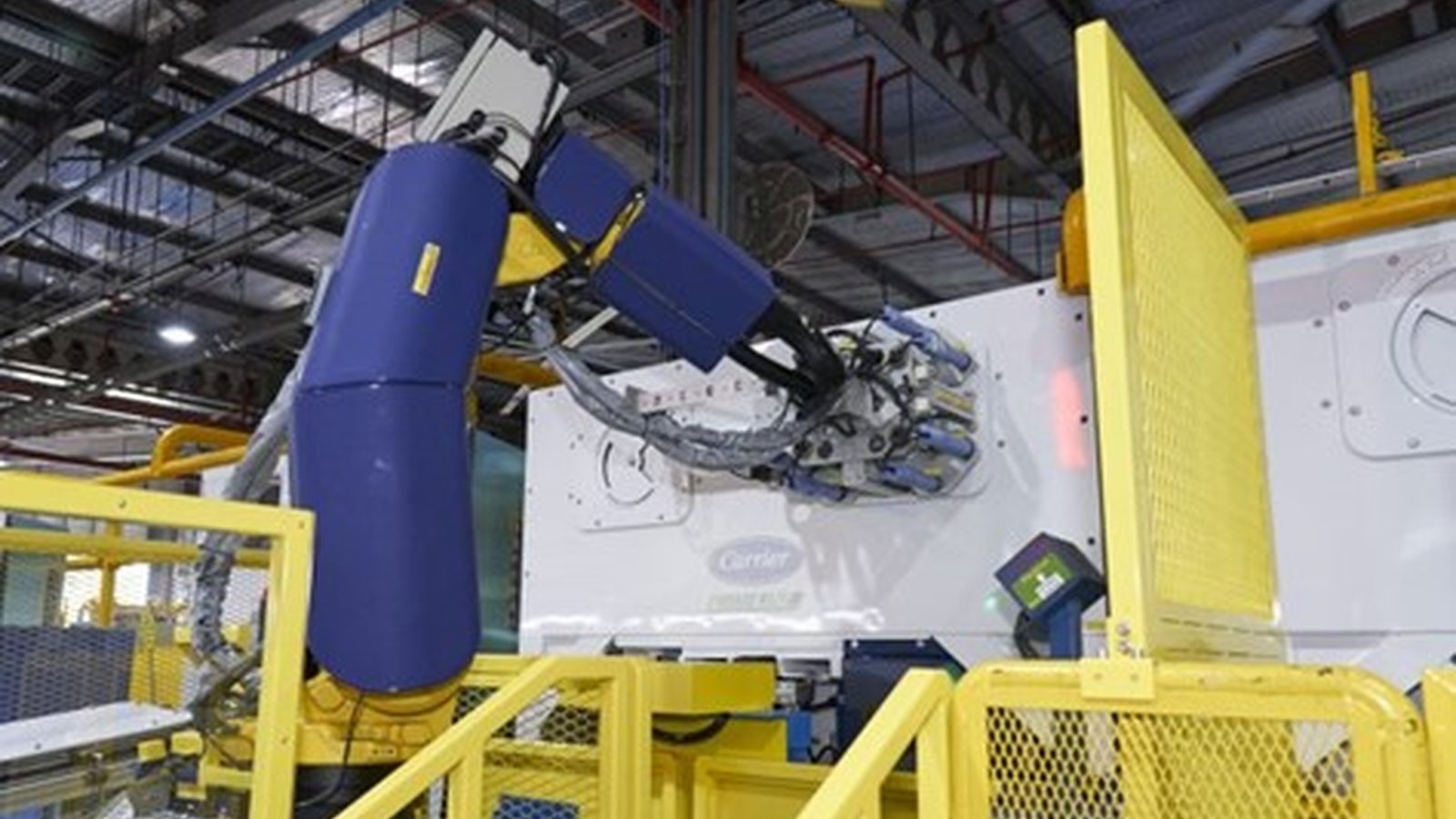
Carrier Transicold begins using robots at Global Container Refrigeration factory
Jul 24, 2024 — Carrier Transicold, a company in the home appliance industry with over $20 billion in revenue, operates globally with headquarters in the USA and an important manufacturing site in Singapore. At this site, the company faced a challenge that required human inspection in limited space, making the installation of traditional safety fences difficult.
The cobot works together with employees in small spaces to assist in attaching access doors on refrigeration units. ©Touché Solutions
The solution to this problem was the installation of the T-Skin on the FANUC M-20iD/35, a compact 6-axis robot with a payload capacity of 35 kg. This collaborative robot (cobot) was chosen due to its ability to work in confined spaces alongside human workers, addressing the spatial constraints that ruled out other automation solutions. Additionally, the T-Skin technology ensured safety without the need for extensive fencing, making it a practical and efficient choice for the task.
The implementation of the cobot was remarkably swift, taking only half a day to complete. This rapid deployment minimized disruption to ongoing operations and allowed Carrier Transicold to quickly benefit from the new technology.
The introduction of the cobot brought significant benefits to the Singapore factory. Over 8,000 annualized hours of productivity were gained, showcasing the efficiency and reliability of the robotic solution. The cobot assisted in tasks such as attaching access doors on refrigeration units, freeing up human workers to focus on more complex and higher-value operations.
In addition to the immediate productivity gains, Carrier Transicold also saw broader benefits from their automation and digital transformation initiatives. The factory achieved an incremental 3% automation of manufacturing standard hours, enhancing overall efficiency. The adoption of radio frequency identification (RFID) improved inventory tracking, reducing human error and boosting operational efficiency. Digital First-Pass-Yield processes streamlined quality testing, providing real-time feedback that enhanced factory performance and quality control. Moreover, production capacity expanded, resulting in a 10% increase in output.
Carrier Transicold's commitment to innovation and sustainability was evident through these advancements. The cobots exemplified the company's strategy of integrating smart machines with human labor to create more customized, sustainable, and resilient operations. As part of a five-year automation roadmap initiated in 2019, these efforts have laid a solid foundation for ongoing improvements.
In conclusion, Carrier Transicold's innovative use of collaborative robots at their Singapore factory has not only solved immediate operational challenges but also significantly enhanced productivity and efficiency. The success of this initiative underscores the potential of Industry 5.0, where humans and robots work side by side to achieve superior outcomes.

